N
Nancy Clark
Guest
Sports Nutrition: Building a Better Vegan/Vegetarian Sports Diet
Generally, June is the BBQ season with meat-heavy grilling, but these days, many soccer players (and other athletes) are eating less meat and a lot more plant-based diets.
Getting back to the field after the unprecedented moratorium on soccer? What you eat is even more important!
SoccerToday’s nutrition columnist Nancy Clark on practical tips for soccer players who want to win with good nutrition.
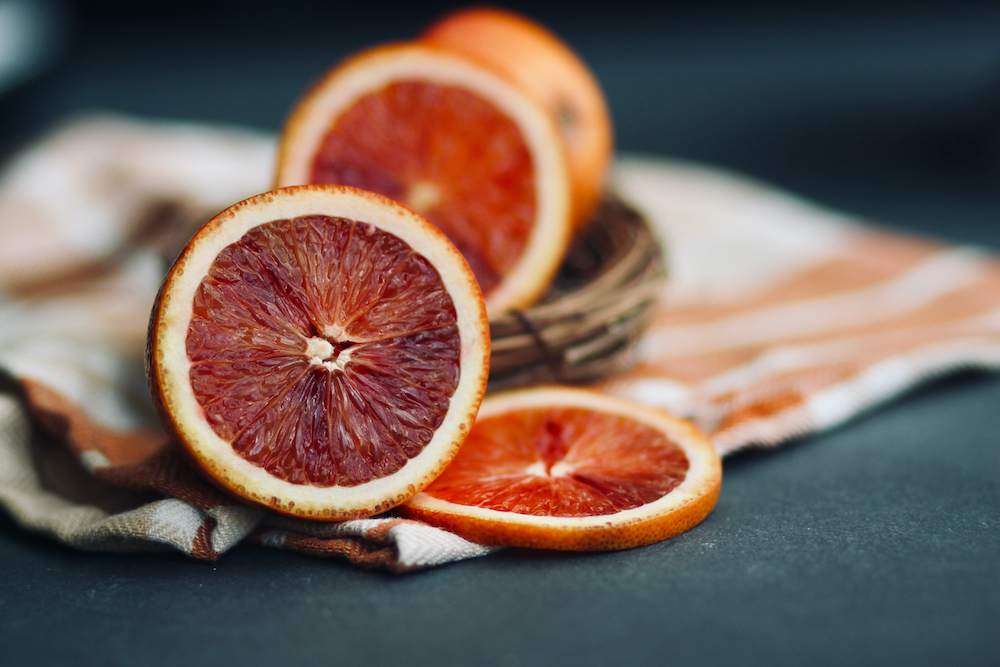
Soccer Player Nutrition: Turning Vegan?
Among soccer players (and all athletes), “turning vegan” (or vegetarian) is not a passing fad. Given the most popular ages for embarking upon a vegan lifestyle are 19, 20, and 21, many collegiate soccer players are asking me how to eat a meatless sports diet.
The standard reasons are:
But according to Frank Mitloehner Ph.D. professor and air quality specialist at UC-Davis, industry, and transportation are far bigger polluters— as is wasted food. Forty percent of food we produce never gets to the table. This podcast with Dr. Mitloehner offers science-based climate-change facts.
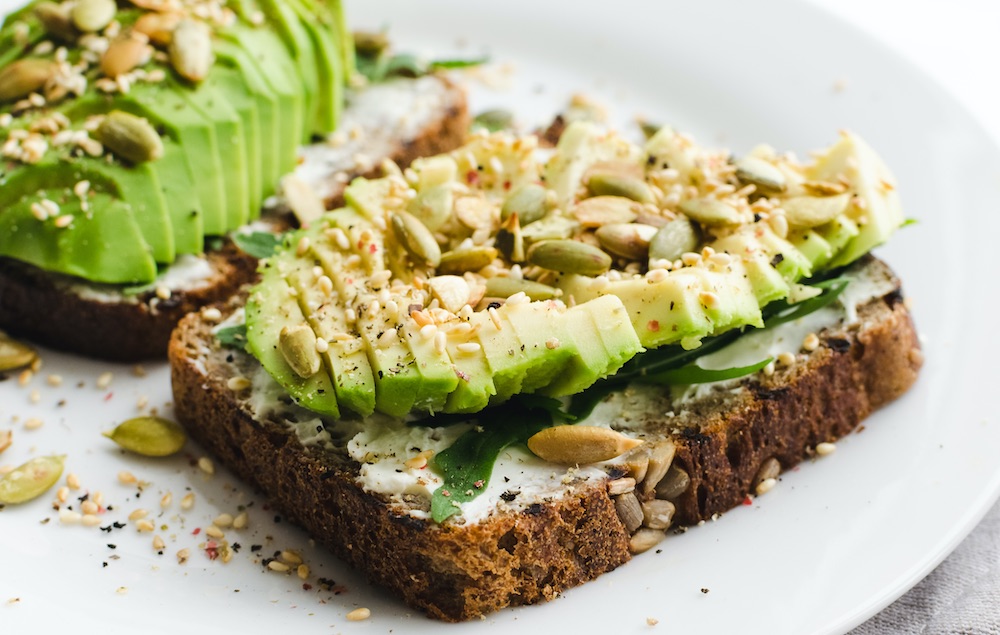
SOCCER NUTRITION: Building A Smart Vegan Sports Diet
For example, when eating on the run, vegans may find Oreos are more readily available than, let’s say, roasted chickpeas.
Grab-and-go snacks of just a bagel or a banana should get balanced with some protein — but is hummus or soymilk readily available? All this means vegan athletes have to be responsible and plan ahead.
When listening to my vegan/vegetarian clients, I often hear “red flag” statements that signal misinformation. Let’s take a look at some common misconceptions and correct some myths related to vegan/vegetarian sports diets.
Plants are “carbs” and while you want to limit nutrient-poor “carbs” (like Frosted Flakes, Pop-Tarts, ramen), wholesome “carbs” (preferably called grain-foods) should be the foundation of every meal to fully fuel muscles.
Soccer players who train one to three hours a day can easily end up with needless fatigue if they try to thrive on fruit and salads. Grains — and all “carbs” — are NOT inherently fattening. Excess calories of any food can be fattening.
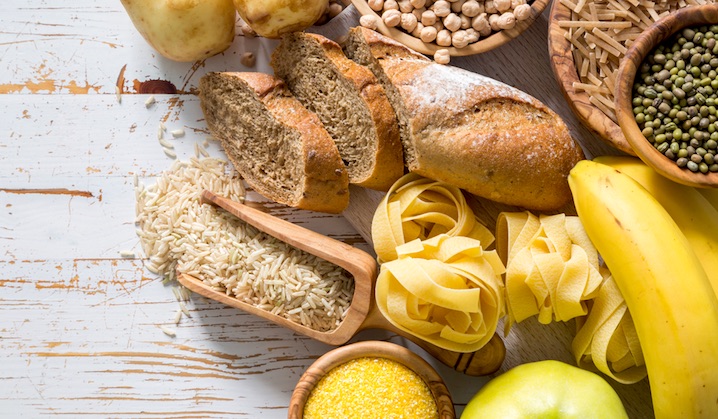
As a vegan/vegetarian athlete, you would be wise to eat grains such as oatmeal, whole wheat bread, brown rice as the foundation of each meal and snack. Combine them with a colorful assortment of fruits and/or vegetables for more muscle-fuel, and of course, include a dose of protein.
While salads can be nutrient-rich, they can also be protein and carb-poor—but high in calories given a “little bit” of olive oil on a big salad ends up being a lot of dressing.
Filling up on calories from fat will not refuel depleted muscle glycogen. Vegan soccer players could better refuel their muscles with a grain-protein combination such as a hummus wrap or beans and rice.
Quinoa is reputed to be a protein-rich grain, containing all the essential amino acids needed to build muscle.
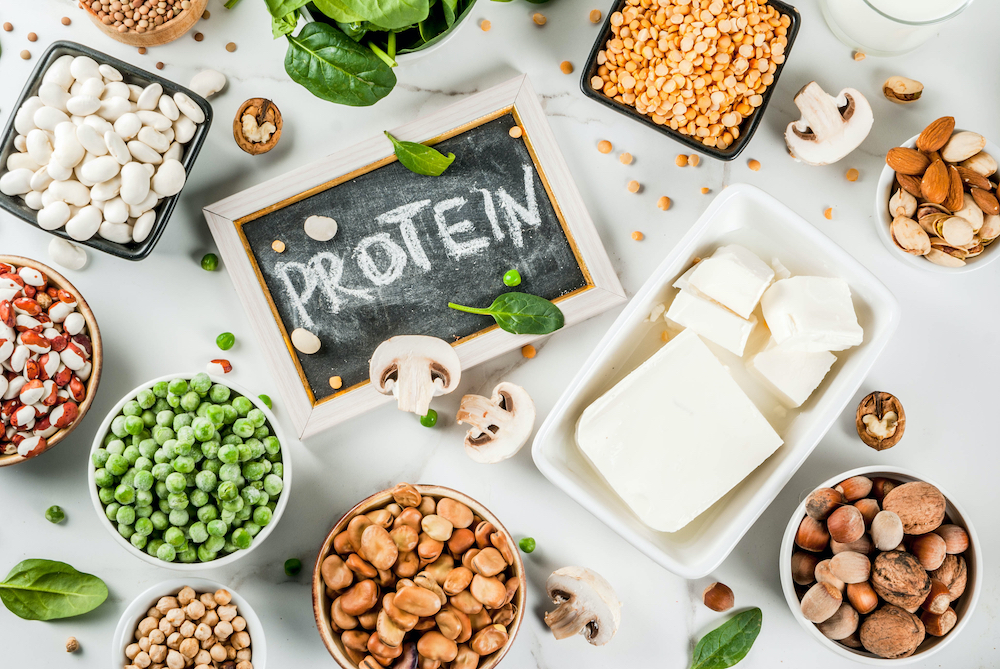
It is not a stand-along protein-rich food. If you compare quinoa to other grains, you’ll see it offers only 6 grams of protein per 200 calories, similar to rice (4 g), and less than pasta (7 g). Most soccer players should target at least 15 to 25 grams of protein at each meal.
That means you want to add more than just quinoa to your salad. How about tofu? beans? lentils?
Almond juice — it is not milk — has far fewer nutrients than dairy milk. Milk’s 8 grams of high-quality protein is life-sustaining. The 1 gram of low-quality protein in almond beverages is not. Soy or pea milk are acceptable dairy-free alternatives to cows’ milk.
Other popular nutrition rumors are, “Soy causes cancer and man-boobs?” Wrong.
The latest research indicates soy is cancer preventive and is safe— even for women with breast cancer. As for man-boobs, the one case study about unusual male breast development refers to a person who routinely drank three quarts of soymilk a day. That is a LOT of soymilk. For the latest soy updates, enjoy this podcast:
Protein-rich foods are preferable to highly processed bars and shakes. Nutrients in natural foods interact synergistically. Instead of yet-another bar or shake for a meal or snack, how about cereal + (soy) milk, crackers + hummus, or banana + nut butter? Aren’t these real foods more in keeping with the spirit of veganism?
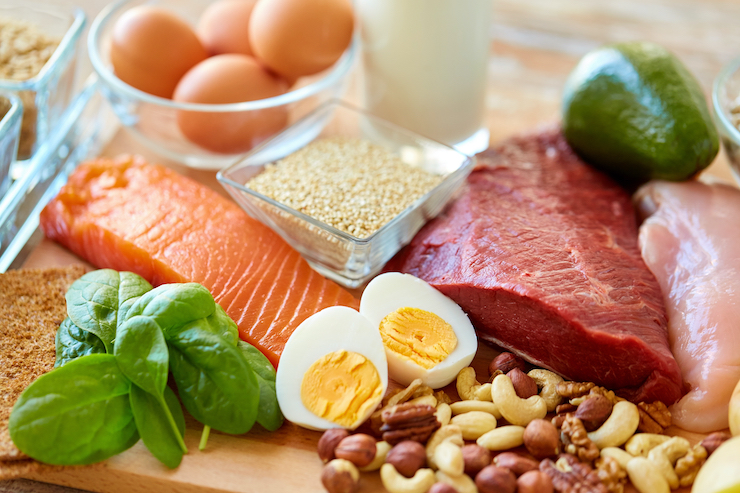
Traditional sources of protein on SoccerToday’s Nutrition Info for soccer players
SOCCER NUTRITION NOTE: Beware … Though not verbalized as a reason to go vegan, meatless diets, unfortunately, are a popular way for soccer players with anorexia to cut out chicken, beef, fish, eggs, dairy … to the point, they are living on little more than fruits and veggies.
Eating disorders can change healthy vegan meals into diets deficient in not only protein, but many nutrients, including iron, calcium, zinc, B-12, vitamin D, iodine, and omega-3 fats. Within a few months, good health can dwindle into injuries, hair falling out in clumps, low energy, and poor athletic performance.
Related Articles: Soccer Players: Next Level Nutrition; Nutrition Tips for Soccer Players: The Athlete’s Kitchen
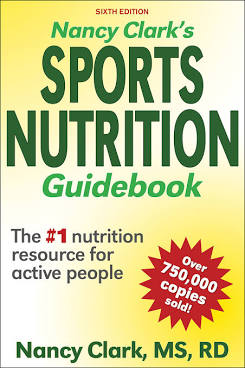

Sports Nutritionist Nancy Clark
SIDEBAR: Nutritional and medical advice changes with new discoveries and interpretations. Always check with your medical provider and/or nutritionist for what is best for you and your family.
Sports nutritionist Nancy Clark MS RD CSSD has a private practice in the Boston-area, where she helps both fitness exercisers and competitive athletes create winning food plans. Her best-selling (6th Edition) Sports Nutrition Guidebook, and Food Guide for Soccer, as well as teaching materials, are available at www.nancyclarkrd.com. Click here for online and live workshops.
Photo Credit: Vegan Liftz / Shutterstock
The post SOCCER PLAYERS: THE POWER OF A VEGAN or VEGETARIAN SPORTS DIET appeared first on SoccerToday.
Continue reading...
SoccerToday News from Diane Scavuzzo
Generally, June is the BBQ season with meat-heavy grilling, but these days, many soccer players (and other athletes) are eating less meat and a lot more plant-based diets.
Getting back to the field after the unprecedented moratorium on soccer? What you eat is even more important!
SoccerToday’s nutrition columnist Nancy Clark on practical tips for soccer players who want to win with good nutrition.

Soccer Player Nutrition: Turning Vegan?
Among soccer players (and all athletes), “turning vegan” (or vegetarian) is not a passing fad. Given the most popular ages for embarking upon a vegan lifestyle are 19, 20, and 21, many collegiate soccer players are asking me how to eat a meatless sports diet.
The standard reasons are:
- Vegan and vegetarian diets tend to be healthier than a diet based on burgers and bacon.
- Indeed, plant-based meals with beans, veggies, and whole grains are nutrient-dense, fiber-rich, and abundant in healthful phytochemicals and healthy fats.
- Yet, vegan diets are not always healthier. Coke, Oreos, Skittles, Doritos are vegan-friendly …
- Vegans/vegetarians are leaner than omnivores, so some soccer players embark upon a vegan lifestyle in hopes of losing weight.
- That might happen if your vegan/vegetarian diet coincides with limiting your intake of calories.
- Knocking off 300 calories of ice cream and replacing it with 100 calories of berries creates a significant calorie reduction.
- Plant-based diets address concerns about animal rights and the environment.
- Vegan/vegetarian diets appeal to animal lovers and soccer players who want to help save the planet.
- Reducing animal agriculture is one small way to curb global warming (and every little bit helps).
But according to Frank Mitloehner Ph.D. professor and air quality specialist at UC-Davis, industry, and transportation are far bigger polluters— as is wasted food. Forty percent of food we produce never gets to the table. This podcast with Dr. Mitloehner offers science-based climate-change facts.

SOCCER NUTRITION: Building A Smart Vegan Sports Diet
The busy lifestyle of vegan soccer players can create nutrition challenges.
For example, when eating on the run, vegans may find Oreos are more readily available than, let’s say, roasted chickpeas.
Grab-and-go snacks of just a bagel or a banana should get balanced with some protein — but is hummus or soymilk readily available? All this means vegan athletes have to be responsible and plan ahead.
When listening to my vegan/vegetarian clients, I often hear “red flag” statements that signal misinformation. Let’s take a look at some common misconceptions and correct some myths related to vegan/vegetarian sports diets.
“Carbs” are fattening, a waste of calories? False.
Plants are “carbs” and while you want to limit nutrient-poor “carbs” (like Frosted Flakes, Pop-Tarts, ramen), wholesome “carbs” (preferably called grain-foods) should be the foundation of every meal to fully fuel muscles.
Soccer players who train one to three hours a day can easily end up with needless fatigue if they try to thrive on fruit and salads. Grains — and all “carbs” — are NOT inherently fattening. Excess calories of any food can be fattening.

As a vegan/vegetarian athlete, you would be wise to eat grains such as oatmeal, whole wheat bread, brown rice as the foundation of each meal and snack. Combine them with a colorful assortment of fruits and/or vegetables for more muscle-fuel, and of course, include a dose of protein.
Lunchtime salads are a healthy vegan meal? Sometimes.
While salads can be nutrient-rich, they can also be protein and carb-poor—but high in calories given a “little bit” of olive oil on a big salad ends up being a lot of dressing.
Filling up on calories from fat will not refuel depleted muscle glycogen. Vegan soccer players could better refuel their muscles with a grain-protein combination such as a hummus wrap or beans and rice.
Quinoa can be the “protein” in a vegan meal? No!
Quinoa is reputed to be a protein-rich grain, containing all the essential amino acids needed to build muscle.

It is not a stand-along protein-rich food. If you compare quinoa to other grains, you’ll see it offers only 6 grams of protein per 200 calories, similar to rice (4 g), and less than pasta (7 g). Most soccer players should target at least 15 to 25 grams of protein at each meal.
That means you want to add more than just quinoa to your salad. How about tofu? beans? lentils?
Almond milk is a replacement for dairy milk? No way!
Almond juice — it is not milk — has far fewer nutrients than dairy milk. Milk’s 8 grams of high-quality protein is life-sustaining. The 1 gram of low-quality protein in almond beverages is not. Soy or pea milk are acceptable dairy-free alternatives to cows’ milk.
Other popular nutrition rumors are, “Soy causes cancer and man-boobs?” Wrong.
The latest research indicates soy is cancer preventive and is safe— even for women with breast cancer. As for man-boobs, the one case study about unusual male breast development refers to a person who routinely drank three quarts of soymilk a day. That is a LOT of soymilk. For the latest soy updates, enjoy this podcast:
Protein bars and powders can replace real foods? Not really.
Protein-rich foods are preferable to highly processed bars and shakes. Nutrients in natural foods interact synergistically. Instead of yet-another bar or shake for a meal or snack, how about cereal + (soy) milk, crackers + hummus, or banana + nut butter? Aren’t these real foods more in keeping with the spirit of veganism?

Traditional sources of protein on SoccerToday’s Nutrition Info for soccer players
SOCCER NUTRITION NOTE: Beware … Though not verbalized as a reason to go vegan, meatless diets, unfortunately, are a popular way for soccer players with anorexia to cut out chicken, beef, fish, eggs, dairy … to the point, they are living on little more than fruits and veggies.
Eating disorders can change healthy vegan meals into diets deficient in not only protein, but many nutrients, including iron, calcium, zinc, B-12, vitamin D, iodine, and omega-3 fats. Within a few months, good health can dwindle into injuries, hair falling out in clumps, low energy, and poor athletic performance.
Related Articles: Soccer Players: Next Level Nutrition; Nutrition Tips for Soccer Players: The Athlete’s Kitchen


Sports Nutritionist Nancy Clark
SIDEBAR: Nutritional and medical advice changes with new discoveries and interpretations. Always check with your medical provider and/or nutritionist for what is best for you and your family.
Sports nutritionist Nancy Clark MS RD CSSD has a private practice in the Boston-area, where she helps both fitness exercisers and competitive athletes create winning food plans. Her best-selling (6th Edition) Sports Nutrition Guidebook, and Food Guide for Soccer, as well as teaching materials, are available at www.nancyclarkrd.com. Click here for online and live workshops.
Photo Credit: Vegan Liftz / Shutterstock
The post SOCCER PLAYERS: THE POWER OF A VEGAN or VEGETARIAN SPORTS DIET appeared first on SoccerToday.
Continue reading...
SoccerToday News from Diane Scavuzzo
